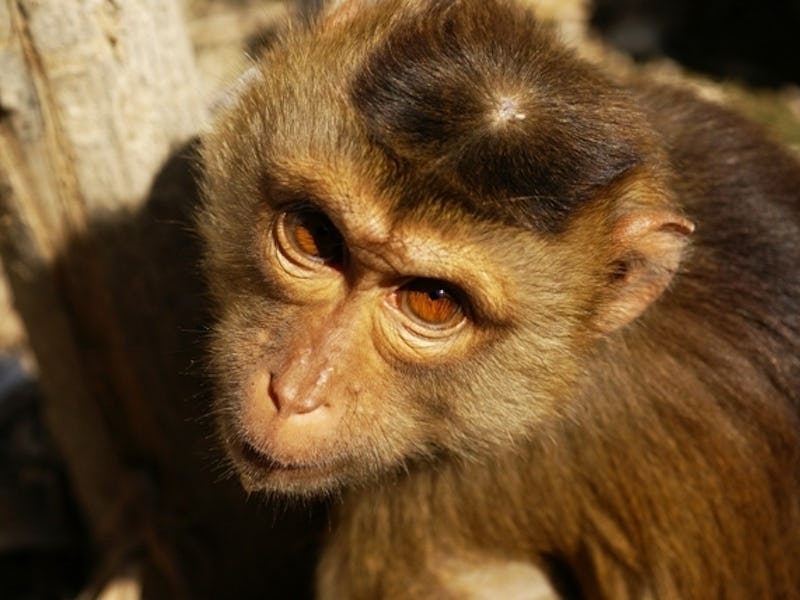Scientists Say Monkeys May Be More Self-Aware Than We Thought
They trained rhesus monkeys to pass the "mirror test."

The line between humans and animals just got a lot thinner. As much as people love their pets, we rarely consider them our equals. Even animals like chimps or monkeys, which are our closer evolutionary relatives, may act a lot like we do, but most people still place themselves above these animals in terms of intellect and consciousness.
A group of scientists removed one more brick from the delicate façade of human superiority last week. Neurobiologists Liangtang Chang, Shikun Zhang, Mu-ming Poo, and Neng Gong from the Shanghai Institutes for Biological Sciences in China published a new paper in Proceedings of the National Academies of Sciences in which they showed that rhesus monkeys can be taught to recognize themselves in a mirror. Mirror self-recognition, a behavior scientists previously thought only highly intelligent animals such as humans, dolphins, and crows displayed, has long been a flagship test of self-awareness. But this new research calls that idea into question.
“Bodily self-consciousness may be a cognitive ability present in many more species than previously thought,” write the scientists.
For this research, the scientists trained rhesus monkeys to use a mirror to touch a laser mark that they could only see via a mirror. The monkeys accomplished this, touching the laser accurately and consistently.
This was a significant accomplishment, but they didn’t stop there. They continued to train the monkeys to use the mirror to touch the laser, and then one day, they showed the monkeys their own faces in a mirror and shined the lasers on them. This is not something for which the monkeys had never been trained, but they successfully touched their own faces while looking in the mirror. What’s more, the monkeys passed the test again when they weren’t strapped into the chair in the testing environment.
“All trained monkeys passed the standard face mark test for MSR both on the monkey chair and in their home cage,” write the scientists.
This research suggests that the MSR test may not be sufficient for determining whether animals are self-aware, since all animals don’t necessarily understand themselves and their world the same way humans and other animals do. This also might change the way we think about animal testing, which is based on the premise that animals are less conscious or aware than humans.
Now, of course, here’s what it looked like: